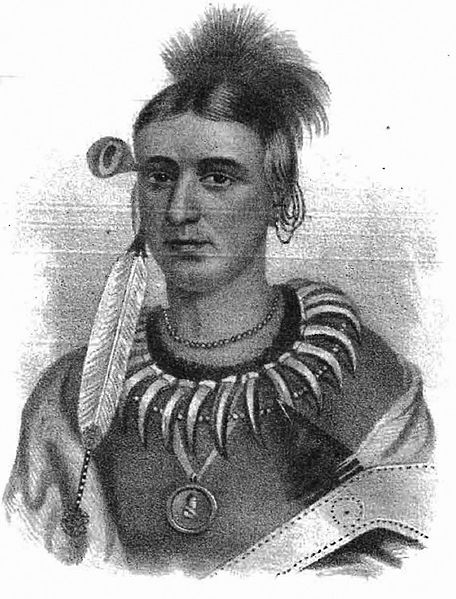




Mahaska
I grew up in Mahaska County and went to North Mahaska schools.
I did know that there was a statue of Chief Mahaska in the Oskaloosa city square. But who was he? I would not have been able to tell you.
I have done a little bit of research since then, and here is what I found. Mahaska means "white cloud", and there were two of them.
The first Chief Mahaska, sometimes called Mahaska I, was born about 1785 and died in 1834. He was the father of the second Mahaska.
Mahaska and his son belonged to the Ioway tribe. The language they spoke was closely related to that of the Sioux tribes.
The Ioway historically occupied much of the land currently named after them, but by the early 1800s had been pushed south by their rivalrys with the Sauk and the Meskwaki, and lived in the area of the Des Moines River. Like the Meskwaki and the Sauk they were seasonally migratory, having a permanent home but leaving it for extended times to hunt.
Indian agents of the United States and missionaries attempted to get the Indians to assimulate to their culture--give up hunting, take up farming instead, and to use the laws and traditions of the United States for settling grievances instead of the traditional Indian ways.
Mahaska was quick to assimulate. He built a large house in an area called Iowaville. He farmed there, and he prospered. He signed treaties that promised he would live in peace.
 |
 |
| This is the original Mahaska. This is apparently re-drawn from a painting by George Bird King. | This was Mahaska (II). He was the son of Mahaska. He also was known at times as "Frank White Cloud." This painting was by George Catlin. |
What about those other counties?
What city was named after George King?
Who walked half-way around the world and ate his shoes to survive?
Did the poet really discover the butterfly?